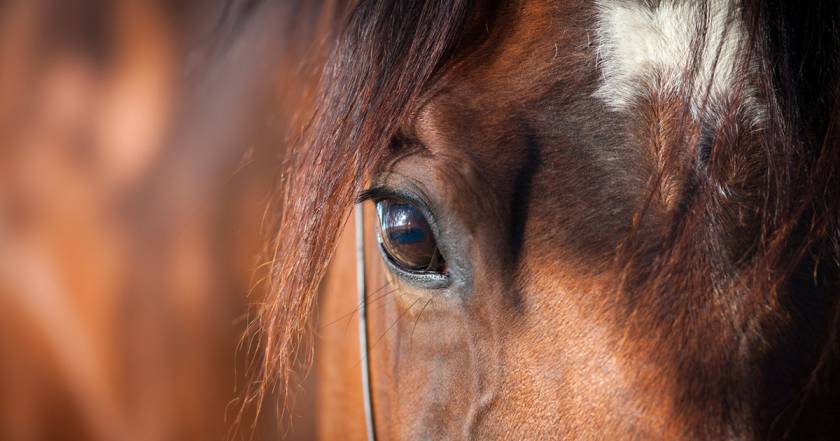Gastric Ulcers
Aug 08, 2020
Megan Hasenour | Marketing Communications Manager

Gastric ulcers can affect any horse at any age. Foals are particularly susceptible because they secrete gastric acid as early as 2 days of age.
Why are gastric ulcers so common in horses?
A horse’s stomach is smaller than any species; therefore, horses cannot eat large amounts of food. Rather they graze and have more frequent, small portioned meals.
Horses stomach produces acid 24 hours a day, which comes out to be about 9 gallons of acidic fluid per day (for an adult horse), even when they are not eating. In a high roughage diet, the acid is buffered by feed and saliva. Therefore, when horses are fed only 2 times per day, the stomach is subjected to a prolonged period without feed to neutralize the acid. Furthermore, high-grain diets produce volatile fatty acids that can attribute to ulcers.
Physical and environmental stress can also be a factor of gastric ulcers. Signs of gastric ulcers may include:
Prevention is the preferable treatment. Here are some management techniques that may help prevent ulcers:
As always, discuss any feed or drug changes with your veterinarian, so that medical conditions can be considered.
Check out the gastric support products we distribute at our Superior Ag Dale Feed Store. https://www.superiorag.com/Feed-Store#nutritional
For more info on Gastric Health, visit: https://www.purinamills.com/horse-feed/education/detail/gastric-health-the-key-to-your-horse-s-best-self

Gastric ulcers can affect any horse at any age. Foals are particularly susceptible because they secrete gastric acid as early as 2 days of age.
Why are gastric ulcers so common in horses?
A horse’s stomach is smaller than any species; therefore, horses cannot eat large amounts of food. Rather they graze and have more frequent, small portioned meals.
Horses stomach produces acid 24 hours a day, which comes out to be about 9 gallons of acidic fluid per day (for an adult horse), even when they are not eating. In a high roughage diet, the acid is buffered by feed and saliva. Therefore, when horses are fed only 2 times per day, the stomach is subjected to a prolonged period without feed to neutralize the acid. Furthermore, high-grain diets produce volatile fatty acids that can attribute to ulcers.
Physical and environmental stress can also be a factor of gastric ulcers. Signs of gastric ulcers may include:
- Poor appetite
- Dullness
- Attitude changes
- Decreased Performance
- Reluctance to train
- Poor body condition
- Poor hair coat
- Weight loss
- Excessive time spent lying down
- Low-grade colic
- Loose feces
Prevention is the preferable treatment. Here are some management techniques that may help prevent ulcers:
- Feed horses more frequently or on a free-choice basis (pasture).
- Reduce the amount of grain and concentrates
- Avoid or decrease the use of anti-inflammatory drugs.
- Limit stressful situations
- Allow horses to socialize with other horses if they are stalled
As always, discuss any feed or drug changes with your veterinarian, so that medical conditions can be considered.
Check out the gastric support products we distribute at our Superior Ag Dale Feed Store. https://www.superiorag.com/Feed-Store#nutritional
For more info on Gastric Health, visit: https://www.purinamills.com/horse-feed/education/detail/gastric-health-the-key-to-your-horse-s-best-self